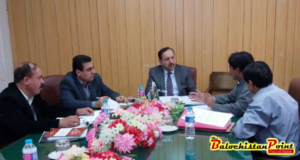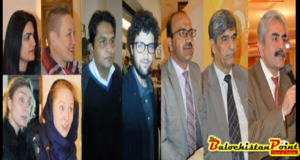To his credit, Prime Minister (PM) Nawaz Sharif made it a point to travel to Quetta in the wake of the suicide bombing near an imambargah on Sunday to apply balm on the wounds of the victims. After a high level meeting, the PM said in a press conference that terrorist violence was no longer acceptable. The PM directed all law enforcement agencies, including the ISI and IB, to treat the Sunday bombing as a ‘test case’ and catch the culprits. He said Quetta is a small city of about 20 lanes and it should not be hard to secure it. The PM needs to reflect why this has not happened for the ‘small’ city so far, not even for the Hazara areas of Quetta that have been under unremitting terrorist attack for months now, extracting a toll of hundreds of lives. Could this be a case of turning a blind eye to terrorism, the main thrust of which in Quetta has been sectarian? This in spite of the fact that the Lashkar-e-Jhangvi has openly and repeatedly claimed responsibility for the killings of the Shia Hazara in Quetta since at least January this year. The conspiracy minded are wont to ascribe this strange anomaly to some covert agenda to draw attention away from the Baloch nationalist insurgency raging in the province while subjecting even moderate nationalists not fighting with the insurgents to the ‘kill and dump’ policy that has so far delivered a grisly crop of badly tortured dead bodies turning up all over Balochistan and lately in Karachi. The only passing reference the PM made to this other troubling phenomenon in Balochistan was to say that the issue of missing persons would be ‘resolved soon’. With respect Mr PM, all the efforts of human rights bodies and even the Supreme Court has failed to resolve this problem. It is therefore difficult to swallow this assurance without a huge pinch of salt. The reason is that the military, acting through the Frontier Corps (FC) and its intelligence agencies, is said to be behind the ‘kill and dump’ policy. They perhaps see it as the only, and perhaps ‘final’ solution to Baloch nationalism that has of late despaired of remaining within Pakistan and whose insurgent wing has been openly demanding independence. Dr Abdul Malik’s induction as chief minister raised hopes in some quarters that he may be able to persuade the insurgents to talk rather than fight. So far, however, there is no sign that the new government in Quetta has moved on this front. And if it has discreetly, the chances of success are diminished to the same degree as the abduction, torture, killing and dumping of dissidents is not curbed. It is all very well, and by all measure positive, for the PM to call on all agencies to coordinate closely and assist the Balochistan government to crush terrorism, but the lack of coordination between federal and provincial, civilian and military agencies is as rife in Balochistan as in the rest of the country. Mere lip service to a coordinated effort may not be sufficient. It is good that the PM has promised to return to Balochistan to monitor the situation personally. Perhaps his intervention can get the traditionally hermetically sealed world of the security and intelligence agencies to open up for the sake of the national endeavour against the terrorist threat.
While it was appropriate that the PM concentrate mainly on the terrorism in Quetta on this visit, he was mindful of the dimensions of the problem beyond Quetta and even beyond Balochistan. His commitment to assist all provincial governments, including non-PML-N ones in Sindh (PPP) and Khyber Pakhtunkhwa (PTI) is a welcome move to rise above partisan political interests for the sake of the country. Similarly, promising to convene a big conference of the leaders of all political parties on his return from China to chalk out the approach to combating terrorism seems sensible as a way of taking all political forces on board, but we would caution against the tendency of such meetings to confine themselves to high sounding verbal statements without any practical effect. The PM should ask for concrete steps the parties think are needed, and ask for their cooperation in implementing them. This is doubly important since the stance of the PML-N and the PTI during the election campaign that the best way forward was to talk to the militants seems to have entered a cul de sac since continuing drone strikes and terrorist attacks have made that project suspect if not dead in the water.
While the intent of the PM to get the security agencies to make the Quetta bombing a ‘test case’ can be understood as an exhortatory message to these agencies to get their act together, it runs the risk of falling into the same category of reactive rather than pro-active steps that are needed to crush terrorism. First and foremost, the historical antipathy of security, particularly intelligence agencies to sharing turf or information and cooperating fully with their brother agencies has to be overcome by bringing all these disparate organisations under one roof, in one anti-terrorism body with a common data base. Only when all the available inputs of intelligence, information, organisational structure, areas of operation, links, etc, of the terrorist outfits are known, i.e. all the dots are joined, will a clear picture of the enemy and therefore the means to fight him emerge. “Know thy enemy and know thyself, and you will fight a hundred battles and win” — Sun Tzu, The Art of War.
 Balochistan Point Voice of Nation
Balochistan Point Voice of Nation




